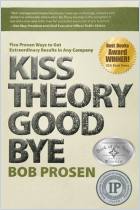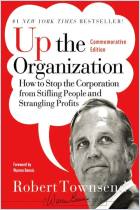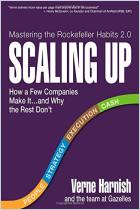
Book
Your Business Is a Leaky Bucket
Learn How to Avoid Losing Millions in Revenue and Profit Annually
Recommendation
Is your company a “leaky bucket”? Various problems, big and small, can cause leaks in your company’s profits. Consultant and coach Howard M. Shore details how and why these issues arise and efficiently explains how to plug the 15 most frequent leaks that relate to “people, strategy” and “execution.” His insightful advice addresses business realities in a practical, conversational tone. getAbstract recommends Shore’s useful manual as a helpful checklist for business leaders.
Summary
About the Author
Business and executive coach Howard M. Shore founded the Activate Group after 20 years of holding leadership positions in the private industry.
Learners who read this summary also read
Book
Book
Book
Book
Book


















Comment on this summary or Comenzar discusión